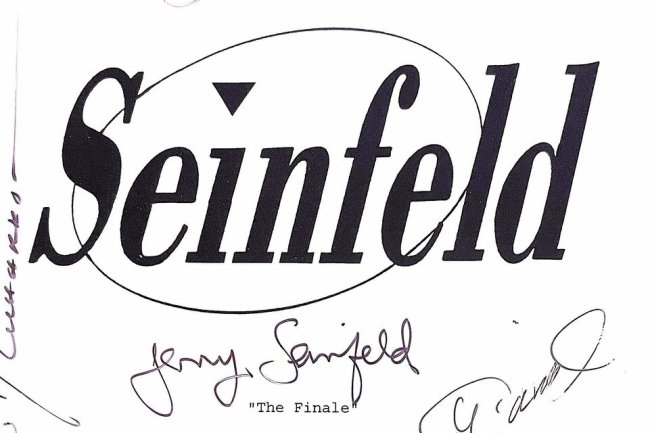Iran’s Nukes Are a Thorn for Saudi-Israeli Peace
The Biden administration can mollify Riyadh by restoring enrichment restrictions on Tehran. By Richard Goldberg Aug. 16, 2023 5:43 pm ET Crown Prince Mohammed bin Salman in Jeddah, Saudi Arabia, July 19. Photo: SAUDI PRESS AGENCY/VIA REUTERS Saudi Crown Prince Mohammed bin Salman has reportedly made a joint U.S.-Saudi nuclear-enrichment program a top condition for a peace deal with Israel. This is untenable. Putting aside the practical and technical challenges posed by establishing such a facility, the U.S. can’t discount the potential for a future Saudi leader to use an industrial-scale enrichment infrastructure to produce fissile material as part of a nuclear weapons program. Once Saudi Arabia builds an enrichment program, Turkey and Egypt will want one too. A race to enrich throughout one of the world’s mo


Crown Prince Mohammed bin Salman in Jeddah, Saudi Arabia, July 19.
Photo: SAUDI PRESS AGENCY/VIA REUTERS
Saudi Crown Prince Mohammed bin Salman has reportedly made a joint U.S.-Saudi nuclear-enrichment program a top condition for a peace deal with Israel. This is untenable. Putting aside the practical and technical challenges posed by establishing such a facility, the U.S. can’t discount the potential for a future Saudi leader to use an industrial-scale enrichment infrastructure to produce fissile material as part of a nuclear weapons program. Once Saudi Arabia builds an enrichment program, Turkey and Egypt will want one too.
A race to enrich throughout one of the world’s most dangerous and unstable regions is a national-security recipe for disaster. But when any American tells a Saudi official that the U.S. can’t support enrichment on Saudi soil, an obvious question comes back quickly: You’re saying you can support an enrichment program in Iran, which is trying to kill Americans every day, but you can’t support an enrichment program in Saudi Arabia, a close strategic partner?
There’s an easy fix for President Biden to deliver Saudi-Israeli peace without giving in to Saudi demands: Restore the international standard of zero enrichment for Tehran.
Tantalized by the prospect of a historic peace agreement that could change the face of the Middle East, there is increasing pressure in both Israeli and American circles to accommodate the Saudi request. After all, the 2015 nuclear deal and subsequent negotiations have all but normalized illicit Iranian nuclear activity. But instead of making an already flawed nonproliferation policy even worse, Mr. Biden should opt for the more obvious path: opposing Iran’s enrichment, too.
Alongside the 2015 Joint Comprehensive Plan of Action, or JCPOA, the U.N. Security Council passed a resolution in 2015 that erased yearslong demands that Iran stop enriching uranium and halt the testing of nuclear-capable ballistic missiles. Worse, the JCPOA included an entire annex detailing how the world would support Iran’s enrichment alongside hundreds of billions of dollars in sanctions relief while the Security Council resolution set a timetable for all other U.N. restrictions on Iran to expire. The conventional arms embargo would end in 2020 and the missile embargo in 2023. Meantime, Tehran would be free to research and develop advanced centrifuges to threaten the West with the capability to produce enough weapons-grade uranium for a nuclear bomb in a matter of days. The U.N. arms embargo did end in 2020 and the missile embargo will expire in two months, though Europe has pledged to keep its own unilateral sanctions in place.
The results of a policy that legitimizes enrichment on Iranian soil are on full display. Iran has raced over the past two years to produce near-weapons-grade enriched uranium—accumulating stockpiles of enriched uranium large enough to produce several nuclear bombs in a matter of weeks. Add in what the world has learned since 2018, when the Israeli Mossad captured Iran’s secret nuclear archive, it became clear that one of the JCPOA’s most fatal flaws was allowing Iran to maintain any enrichment capability.
Fortunately, the Security Council resolution that upended sanctions on Iran came with a mechanism to restore those sanctions—including the standard of zero enrichment for Tehran—should any original JCPOA participant notify the council that Iran had breached its meager set of deliverables in this lopsided bargain. Mr. Biden should work with his counterparts in London, Paris and Berlin to trigger this snapback mechanism without delay.
Iran is so grievously in breach of its JCPOA commitments that even its supporters admit there is no technical way to return to the deal. Iran is supplying armed drones to Russia for use in its war of aggression in Ukraine—with the potential for ballistic-missile transfers—just as the expiration of the U.N. missile embargo is scheduled to arrive this October.
Triggering the snapback—alongside a credible military threat to deter Iran from retaliating with weapons-grade uranium production—would save the missile embargo, restore the arms embargo, and reinstate the international demand for Iran to halt enrichment. It would also solve the greatest challenge to a Saudi-Israeli normalization deal.
By restoring the international standard of zero enrichment for Iran, the U.S. would again speak consistently when it opposes enrichment programs, including those in Saudi Arabia. And with major upgrades in the U.S.-Saudi defense relationship, as Riyadh has requested, alongside deeper security and intelligence coordination with Israel, the Saudi desire for an enrichment program might change dramatically. The U.S. could instead help Saudi Arabia build a civilian nuclear program that forgoes enrichment while solving the kingdom’s thorniest security challenges and brokering the next phase of Arab-Israeli integration.
Mr. Biden’s negotiators are tied up in a Gordian knot of their own making. They can untie it quickly by turning the page on a dead-letter nuclear deal. Snapping back Iran sanctions at the U.N. would snap forward the prospect of broader peace in the Middle East.
Mr. Goldberg, a former National Security Council official and U.S. Senate aide, is a senior adviser at the Foundation for Defense of Democracies.
Wonder Land: Inspired by China and Saudi Arabia, Team Biden's vision for U.S. industrial policy is one in which the government explicitly leads; everyone else follows. Images: AP/AFP/Getty Images Composite: Mark Kelly The Wall Street Journal Interactive Edition
What's Your Reaction?






















